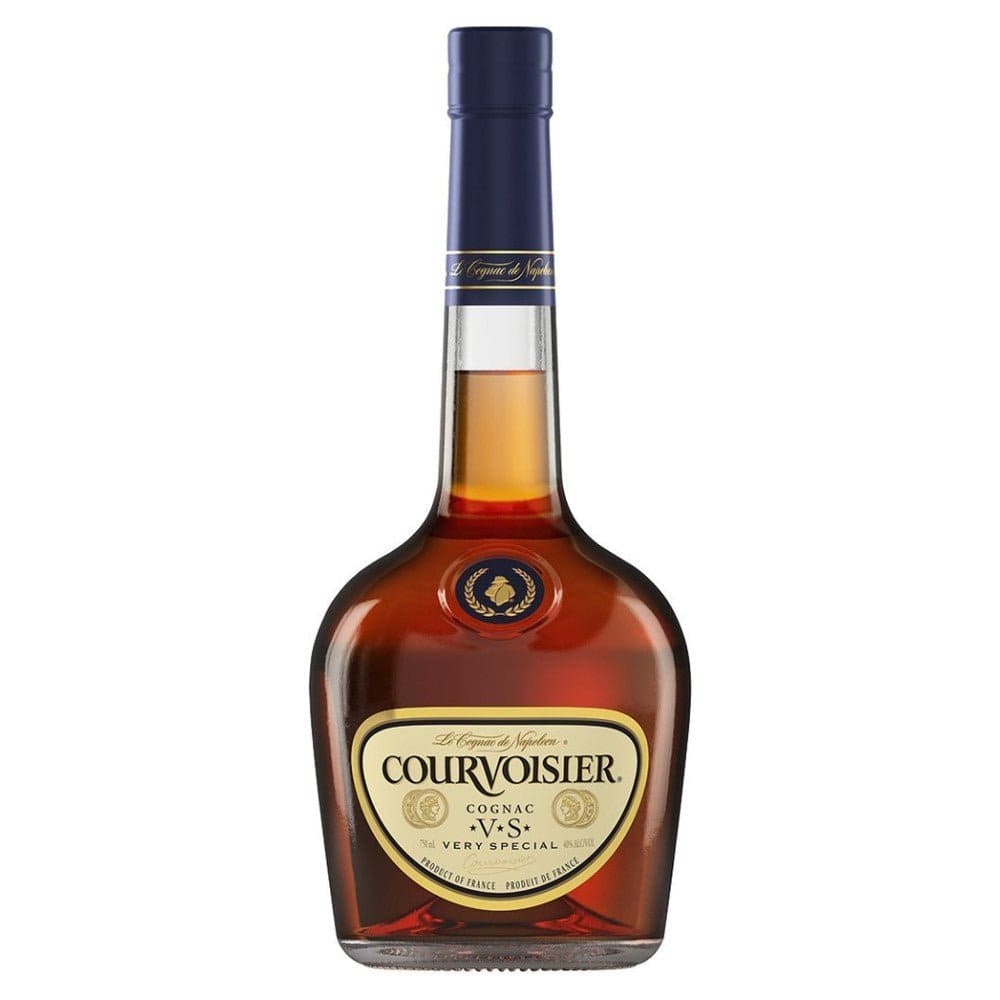
Courvoisier V.S. Cognac
Experience the Essence of Courvoisier V.S. Cognac
Indulge in the sophisticated world of Courvoisier® V.S Cognac, where tradition and craftsmanship come together to create an exceptional spirit. This remarkable blend showcases the artistry of cognac making with its unique characteristics:
Key Features:
- Expertly Crafted Blend: A harmonious fusion of multiple crus meticulously aged between three and seven years.
- Rich Composition: Primarily composed of Fins Bois, complemented by a touch of Petite Champagne for balance.
- Delightful Flavor Profile: Enjoy a fruity, delicate taste complemented by a bouquet of ripe fruits and spring flowers.
- Inviting Aroma: A rich, fresh, and oaky scent, perfectly balanced with the spirited vigor of a young cognac.
Why Choose Courvoisier V.S. Cognac?
Whether you’re celebrating a special occasion or simply unwinding after a long day, Courvoisier® V.S Cognac elevates your experience. Its versatile flavor makes it a perfect choice for sipping neat or mixing in your favorite cocktails. Discover the elegance of Courvoisier® V.S Cognac, where every sip tells a story of heritage and luxury.

Explore a World of Spirits and Liquor through our Comprehensive FAQ Section.
Discover a World of Spirits and Liquor in our Helpful FAQ Section.
Types of Spirits
- Whiskey: Made from fermented grain mash and aged in wooden casks.
- Vodka: Typically distilled from grains or potatoes and known for its clear, neutral flavor.
- Rum: Produced from sugarcane byproducts like molasses or sugarcane juice.
- Tequila: Made from the blue agave plant, primarily in the area surrounding Tequila, Mexico.
- Gin: Distilled with botanicals, primarily juniper berries, giving it a distinctive flavor.
Production Process
- Fermentation: The process where yeast converts sugars into alcohol.
- Distillation: Separating alcohol from the fermented mixture to increase its concentration.
- Aging: Storing spirits in barrels to develop flavors over time.
Tasting and Pairing
- Tasting Notes: Learn to identify different aromas, flavors, and textures.
- Food Pairings: Discover which spirits complement various dishes, enhancing the dining experience.
Cocktails and Mixology
- Classic Cocktails: Recipes and techniques for making popular drinks like the Old Fashioned, Martini, and Mojito.
- Mixology Tips: How to balance flavors and create your own cocktail recipes.
History and Culture
Origins: The historical background of different spirits.
Cultural Significance: How spirits are enjoyed and celebrated around the world.

